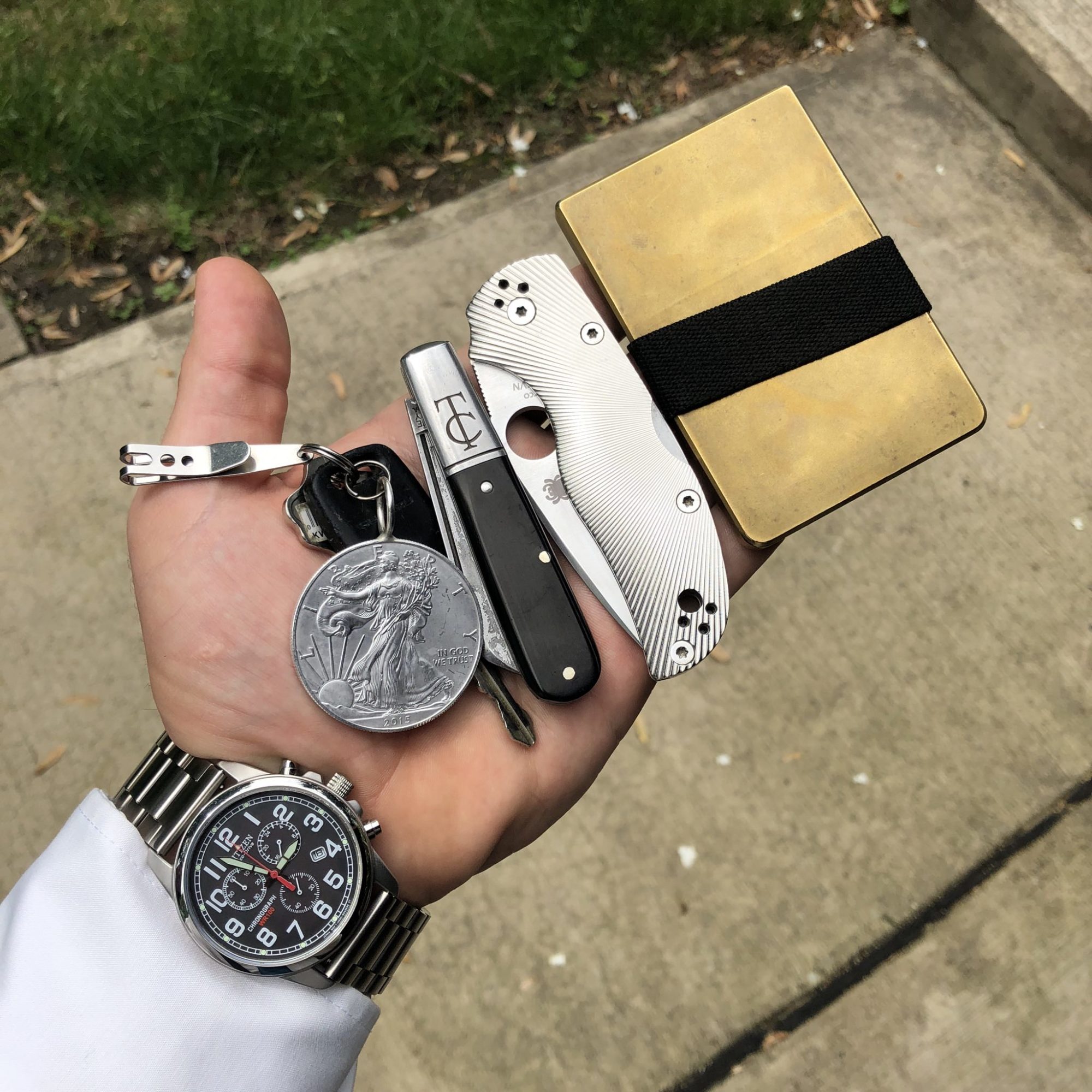I recently picked up a Spyderco Caribbean at a good price. It was about 40% off on what seems to have been an impromptu sale by a big online knife dealer through a much bigger online retailer. I wanted the plain edge version, but only the fully serrated was on sale. So I went for it!

The Caribbean is a knife I’ve had my eye on for a while. I’ve wanted to try LC200N steel as I’ve heard good things about it’s wear resistance versus the H1 steel Spyderco previously used on their Salt knives. I wanted a good knife for around the water (fishing, canoeing, boating, swimming, etc.), and the Caribbean’s highly rust resistant steel and accidental stab deterring sheepfoot blade made it a great choice. Plus the handle design is nice and simple in shape but loud in aesthetics, which I’m a fan of on both accounts. Finally, it has the compression lock which I find to be reliable and easy to use. Seems like a recipe for success, right?

Well, I got it and at first I thought it was great! I haven’t had many fully serrated knives, but it cut through some sunflowers really well. Then I noticed the edge had come with some serious burrs. I had some household cardboard to cut, so I put it to work. Mind you, I’m not talking a full day, or even hour, of breaking down cardboard; more like 4 or 5 boxes. To my shock and dismay, the edge showed all kinds of damage after just that initial use. It had big rolls that almost turned into chips, and it even seemed to still have the burr (and no, I didn’t hit any staples). I suspected it had come with an edge that was burnt in the sharpening process, therefore ruining the heat treatment, and also possibly just too thinly ground. So after just a day of carry I decided to send it in to Spyderco.
Spyderco worked on it and another knife, and got it back to me in a reasonable amount of time. If you’re interested in the full story on that, check out the video above. Unfortunately, I noticed right away that the resharpened edge of the Caribbean seemed off. Not only was it overly sharpened, so that the points of the serrations were rounded off, there were still some of the rolls left and it had burrs (leftover from before or new, I don’t know). I have to say, I was rather disappointed. I can sharpen serrations with the tri-angle stones from the Sharpmaker, but I can’t fix large rolls and damage to the edge. If every time that kind of damage happens, especially if it happens as easily as it seemed to the first time, Spyderco has to take off this much of the serrations then I’m not sure serrations are for me. I wasn’t sure what to do, but I ended up deciding to take matters into my own hands.

I set upon turning it into a plain edged knife. I knew it wouldn’t be easy or pretty, but it was to be a user and I’ve done knife modifications before. First, I used a file to take out as much of the serration ridges as I could and shape the edge. I got the edge shaped, but decided I needed a little more power to work out the serrations completely. So I used a dremel with a sanding wheel (on a slow speed and frequently dipping the blade in water, to keep it cool) to fully flatten the serrations. Finally it was time to sharpen, but that turned out to be no small matter either. Because it was essentially a chisel ground edge by necessity, it took some work getting the angles set and the apex created. Once done it turn out to be, although not great looking, entirely practical and usable. Even though it’s not a professional quality modification, it will make the knife more usable for me and I am happy with that.
So, do I suggest you do this? Absolutely not. It, obviously, voids the warranty (for what that’s worth). If I really wanted a plain edge Caribbean I would have been much better off just paying the extra 40% for it… but where’s the fun in that?
I sincerely thank you for your time, support, and interest! Don’t forget to tell your friends about KnifeThoughts.com, subscribe via email, and share this article on social media. You can find Knife Thoughts on YouTube where I have hundreds of knife videos, as well as on Instagram and Facebook! You can find all my latest links at LinkTr.ee/KnifeThoughts




